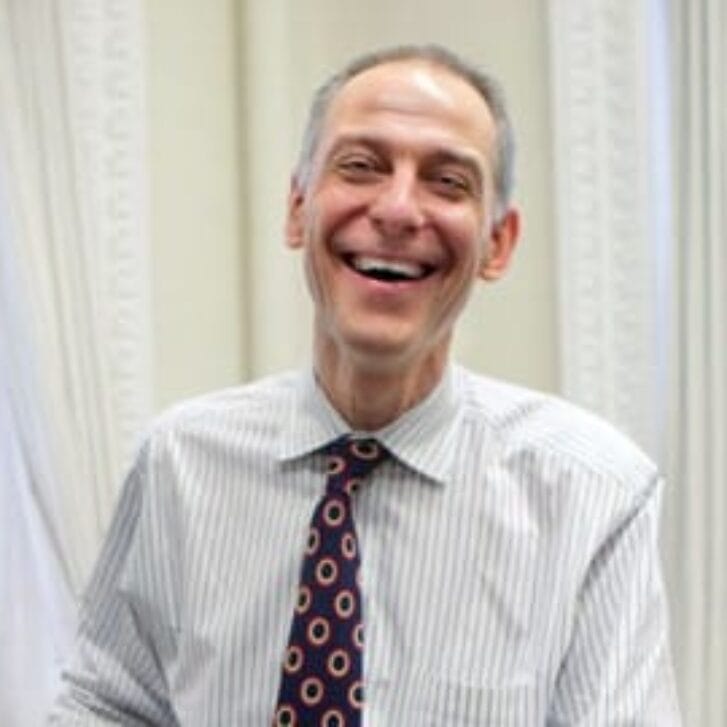THOUGHT
“Mindfulness works, and you don’t have to invest in an intensive eight-week intervention to be able to get the benefits.”
Even short doses of mindfulness — seven to eight minutes— can help employers and workers reap the rewards of such practices, according to new findings published in a paper co-authored by Wharton management professor Lindsey Cameron.
DATA INTERPRETED
$2.6 TRILLION
Long-term shareholder value created by the top five best-performing companies as calculated by a new performance measure called “long-term investor value appropriation”
LIVA — designed by Wharton management professor Nicolaj Siggelkow and Phebo Wibbens, a strategy professor at INSEAD — uses historical share price data to calculate the value a company has created or destroyed for its entire investor base.

THOUGHT
Stock Market Superstition
Investors of all types — including the savvier ones and even corporations — let superstition guide their decisions at times. They tend to put a pattern around one-off events because they want to find structure and predictability, even if the underlying data doesn’t support that desire.
Such investment behavior is often responsible for the high volatility in stock prices, according to a study by Wharton professor of financial management and finance Jessica Wachter and doctoral candidate Hongye Guo GRW22. The study, “‘Superstitious’ Investors,” analyzes data covering the period from 1927 to 2017 and attempts to explain stock market volatility with the premise that it is “too large to arise from rational expectations of future dividends.”
While it’s hard to say exactly how much so, “There’s no question that investors are superstitious,” Wachter noted in an interview with the Wharton Business Daily show on SiriusXM. Existing research on such volatility assumes rational investors but fails to convincingly establish a relationship between the returns for investors bearing risk and the risk premiums, the authors contend. They propose a model for stock return volatility “that does not assume rational investors with full information.” The researchers clarify that they haven’t assumed that investors are irrational; instead, such investors have biases before they process relevant data.
Wachter and Guo trace their findings to landmark research in the late 1940s by psychologist B.F. Skinner that showed how pigeons developed bizarre habits of behavior when presented with food at regular intervals. Research since then has shown that the pigeons’ behavior “illustrates a tendency to create structure out of randomness,” Wachter and Guo write. Research has also shown that “the strong tendency to find structure where none exists characterizes human subjects as well,” they add.
The researchers contend that investors wrongly believe they can forecast dividend growth “using a persistent signal,” arguing that dividend payouts are, in fact, random events. “Prices embed the incorrect beliefs about dividend growth, and thus are excessively volatile,” they write.
“An asset price is today’s forecast of the future outcome of a random process, such as a company’s dividend, or a country’s exchange rate,” the authors note. “Any information investors think they have about this future outcome will be in today’s price. And yet if the process in question is not in fact forecastable, the price will adjust to meet reality, rather than reality adjusting to meet the price.”
DATA INTERPRETED
55%-60%
Average percentage of time the quality of an answer actually improved after a group discussion about a problem
New research from Penn Integrates Knowledge professor Barbara Mellers and Wharton doctoral student Ike Silver GR22 GRW22 challenges “undue confidence” — the notion that the wisdom of the crowd regularly produces better outcomes than one person alone can achieve.

THOUGHT
“In the sharing economy, the consumer is also a producer. The person who rides an Uber on Friday might be the same one who drives one on Saturday.”
Wharton marketing professor Cait Lamberton, co-author of a paper titled “Marketing in the Sharing Economy,” spoke with Knowledge@Wharton about the line companies need to straddle to market a sharing-economy business to those using the service versus those providing it.
DATA INTERPRETED
5O%
Highest return volume experienced by some retailers offering free shipping
While studies have shown that free shipping entices customers to make online purchases, it’s also associated with a high volume of returns, according to Wharton marketing professor Ron Berman, who discussed the impact for retailers on Wharton Business Daily on SiriusXM. “Once you have enough retailers offering free shipping,” he said, “you have to compete, and you need to stay on top of it and offer roughly the same level of service.”
(Illustrations: John Woodcock—fingers; Puruan—key and timer)
Published as “Knowledge@Wharton—Data” in the Spring/Summer 2020 issue of Wharton Magazine.


























